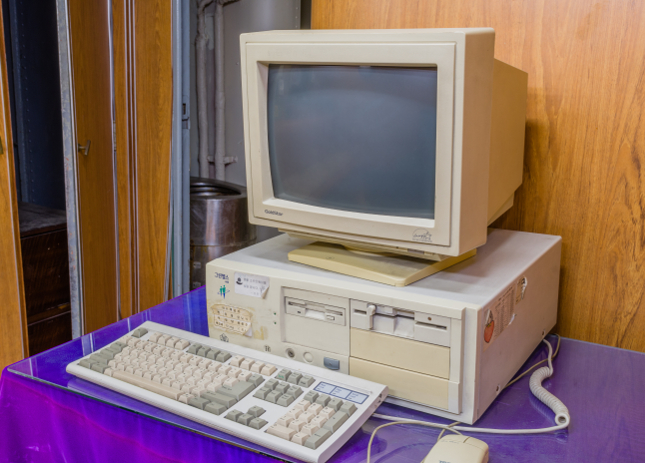
Ubuntu Linux-based Lubuntu no longer focusing on old hardware after move to LXQt
Ubuntu is a great Linux distribution, but understandably, the GNOME desktop environment isn't for everyone. Thankfully, there are many flavors of the operating system with alternative DEs, such as Xubuntu with XFCe and Kubuntu with KDE. Ultimately, with so much choice, you should have no problem finding a version of Ubuntu that best meets your needs and wants.
One popular Ubuntu flavor is Lubuntu. If you aren't familiar, it uses the lightweight LXDE desktop environment which makes it a good choice for older hardware. In fact, one of the focuses of the Lubuntu developers is to support aging computers. When Lubunu 18.10 is released in October 2018, it will ditch LXDE for the newer LXQt. Despite it also being a desktop environment that is easy on resources, the Lubuntu developers are planning to drop their focus on old hardware after the transition.
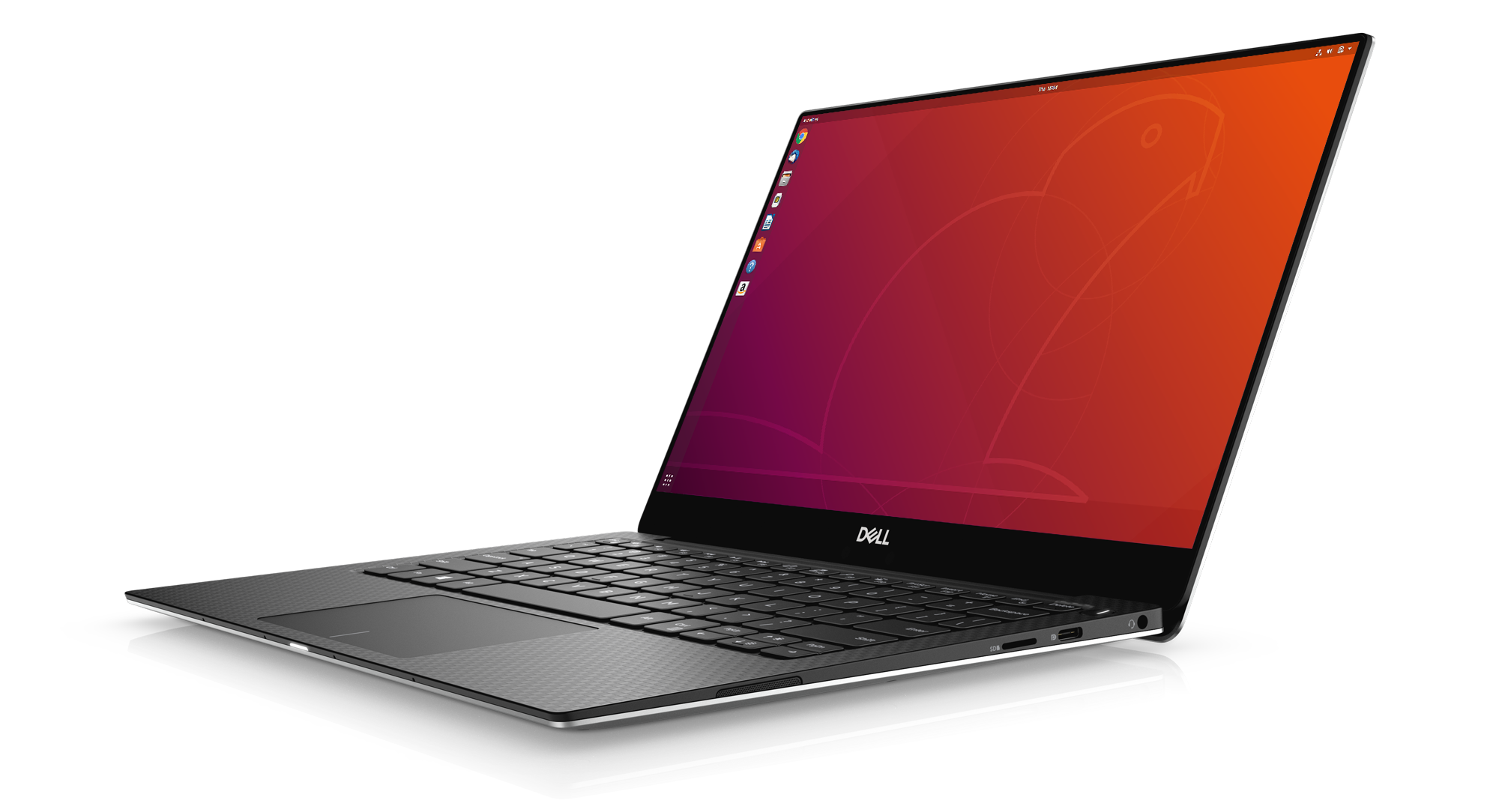
Dell XPS 13 (9370) Developer Edition finally available with Ubuntu Linux 18.04 LTS
The Dell XPS 13 is wonderful laptop regardless of which operating system you choose for it. While it comes with Windows 10 by default, you can also opt for the "Developer Edition" which instead comes with Ubuntu Linux.
Unfortunately for some, Dell has been shipping the Dell XPS 13 Developer Edition with Ubuntu 16.04 despite the newer 18.04 being available. This really isn't such a bad thing, as like 18.04, 16.04 is LTS (long term support) and still supported by Canonical. Some consumers probably appreciated this, as 16.04 was more proven. With yesterday's release of Ubuntu 18.04.1 and its included bug fixes, however, Dell is now ready to ship the newer operating system. Starting today, the XPS 13 Developer Edition comes with Ubuntu 18.04 pre-installed.

Ubuntu Linux 18.04.1 LTS Bionic Beaver available for download
Ubuntu is one of the most popular desktop Linux-based operating systems in the world, and rightfully so. It's stable, fast, and offers a very polished user experience. Ubuntu has gotten even better recently too, since Canonical -- the company that develops the distribution -- switched to GNOME from the much-maligned Unity. Quite frankly, GNOME is the best overall desktop environment, but I digress.
Today, Ubuntu 18.04.1 becomes available. This is the first "point" release of 18.04 LTS Bionic Beaver. It is chock full of fixes and optimizations, which some individuals and organizations have been waiting for before upgrading. You see, while some enthusiasts will install the latest and greatest immediately, others value stability -- especially for business -- and opt to hold off until many of the bugs are worked out. If you are a longtime Windows user, think of it like waiting for Microsoft to release a service pack before upgrading -- sort of.

System76 Linux computer maker offers a sneak peek into its new manufacturing facility
System76 has long been a Linux computer seller, but recently, it has transitioned into a Linux computer maker. What's the difference, you ask? Well, currently, the company doesn't really make its own computers. System76's laptops, for instance, are made by other manufacturers, which it re-brands as its own.
No, System76 doesn't just slap its name on other company's laptops and ship them out the door. Actually, it works closely with the manufacturers, tweaks firmware, and verifies that both Ubuntu and its Ubuntu-based Pop!_OS will work well on the hardware. System76 then offers top-notch support too. In other words, the company isn't just selling a computer, but an experience too.

Canonical releases Minimal Ubuntu for servers, containers and the cloud
There's a new version of Ubuntu on the block -- Minimal Ubuntu. It's been stripped right back to the bone to leave a tiny footprint, and these back Linux distros should boot 40 percent faster than a standard Ubuntu server image. Despite the reduced footprint size, Minimal Ubuntu retains all of Ubuntu's standard tools (such as ssh, apt and snapd) and maintain full compatibility.
Designed for cloud developers and ops, Canonical says that the release is intended for completely automated operations, and as such much of the user-friendliness has been stripped out, but it's still ideal for used in KVM, Google Computer Engine and AWS.

Canonical releases new infographic to show how Ubuntu Linux 'connects everything'
Microsoft owns the desktop with Windows -- it is undeniable. You know what? That's fine. But the success of Windows is not a failure for Linux. What I mean to say is, the open source kernel is omnipresent, whether you know it or not.
To highlight the ubiquitous nature of Ubuntu in particular, Canonical today releases an all-new infographic showing how this distribution "connects everything." I urge you to give it a look, as it will open your eyes to just how important Ubuntu -- and Linux overall -- really is. Apparently, this is an update to a previous infographic released in 2016, refreshed for 2018 following the release of Ubuntu 18.04 Bionic Beaver.
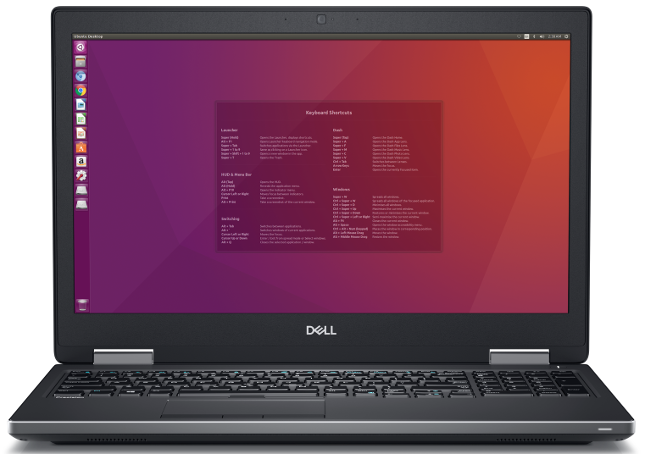
Ubuntu Linux-powered Dell Precision 7530 and 7730 'Developer Edition' laptops finally available
Back in May, we reported on several Ubuntu Linux-powered Dell Precision "Developer Edition" mobile workstations that would be released in 2018. At the time, only one of these laptops was available for purchase -- the Precision 3530.
Of course, the needs of all Ubuntu users cannot be met with just one machine. Thankfully, starting today, two more of these laptops become available for purchase. The Dell Precision 7530 and 7730, as they are called, are 15-inch and 17-inch laptops, respectively.
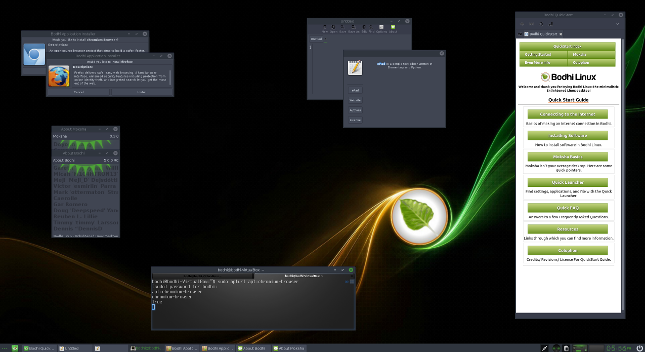
Ubuntu-based Bodhi Linux 5.0.0 release candidate now available
One of the best things about the Linux kernel, is that it can be used by lightweight operating systems to breathe new life into older hardware. Not all Linux-based operating systems focus on computers with aging and meager hardware, however. Instead, there are specialized distributions that focus on being light on resources.
One such excellent option for those with old hardware is Bodhi Linux. This is a lightweight operating system that is based on the wildly popular Ubuntu. It uses the Moksha desktop environment, which is a fork of Enlightenment 17. Today, Bodhi Linux 5.0.0 reaches release candidate status.

Canonical shares analytics from Ubuntu Linux desktop user data collection
Linux and user data collection. Some people will decry such a thing, but they would be wrong. As long as the collection is opt-in, it is totally acceptable and in line with Linux ideology. When is it questionable? When users don't have a choice. With Windows 10 telemetry, for instance, users can opt out of sharing some data with Microsoft, but not all. And that's a problem. Even if Microsoft's intentions are pure, and designed solely with improving Windows 10, users should be able to refuse all data sharing at time of installation.
With Ubuntu desktop, Canonical has started collecting installation data, but it is doing it the right way. It shows the user exactly what data could be shared and lets them choose whether or not they want to send it. It is 100 percent optional -- the way it should be. Guess what? According to the company, 67 percent of users decided to do so. That is an impressive metric in itself. By being open and honest, Canonical achieved what I would call a successful conversion rate. Best of all, it gleaned a lot of interesting data, and it is sharing the analytics publicly.
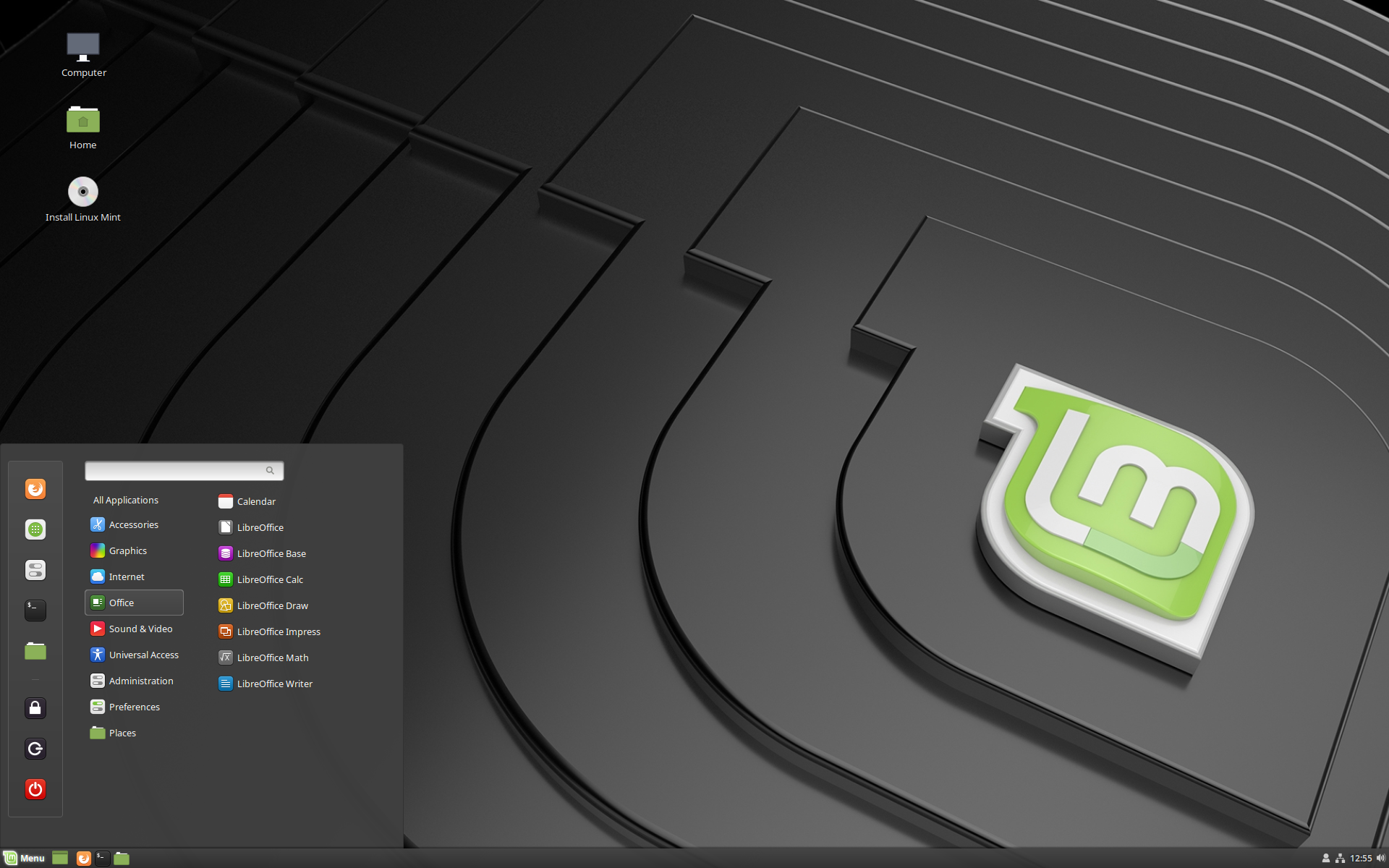
Ubuntu 18.04-based Linux Mint 19 'Tara' Beta is here with Cinnamon, MATE, and Xfce
Ah, Linux Mint. This operating system has its detractors, but for the most part, it is beloved by both Linux beginners and experts alike. True, most of the praise is due to its excellent Ubuntu base, but the Mint team understands what many other distribution maintainers don't -- the overall experience matters. When you install Mint, you are in for a polished treat -- it is clear that the developers truly care about the end users.
Today, Linux Mint 19 "Tara" Beta finally sees release. Three desktop environments are available -- Cinnamon (3.8), MATE (1.20), and Xfce (4.12). All of these DEs are excellent, but the shining star is Cinnamon. Tara is significant as it is based on the newest Ubuntu 18.04 and will receive updates until the year 2023. The included Linux kernel is version 4.15 and not 4.17 -- understandable, as it was only just released.
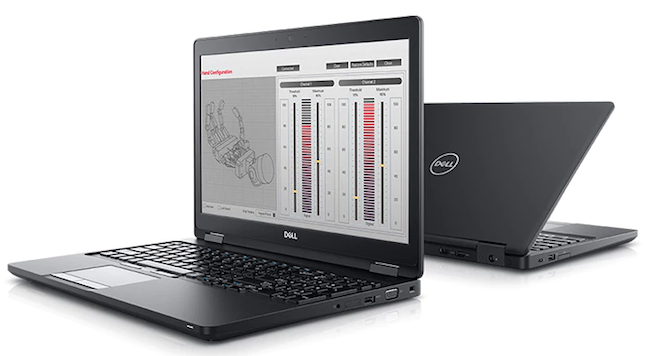
Dell Precision 'Developer Edition' mobile workstations run Ubuntu Linux and are RHEL certified
While Dell is mostly known as a Windows PC manufacturer, the company is also a big proponent of Linux. Its "Developer Edition" models can be configured with Ubuntu, for instance. Of course, despite this branding, non-developers can buy them too. The XPS 13 "Developer Edition" in particular is a svelte machine that should make many home Linux users very happy.
In addition to home users, Dell manufactures solid business-class mobile workstations, and the company recently announced four such Linux-powered models. These Precision "Developer Edition" laptops run Ubuntu and are RHEL certified. One of these notebooks, the Precision 3530, is available today, while the other three will be available soon.

Tennibot is a really cool Ubuntu Linux-powered tennis ball collecting robot
Linux isn't just a hobby -- the kernel largely powers the web, for instance. Not only is Linux on many web servers, but it is also found on the most popular consumer operating system in the world -- Android. Why is this? Well, the open source kernel scales very well, making it ideal for many projects. True, Linux's share of the desktop is still minuscule, but sometimes slow and steady wins the race -- watch out, Windows!
A good example of Linux's scalability is a new robot powered by Linux which was recently featured on the official Ubuntu Blog. Called "Tennibot," the Ubuntu-powered bot seeks out and collects tennis balls. Not only does it offer convenience, but it can save the buyer a lot of money too -- potentially thousands of dollars per year as this calculator shows. So yeah, a not world-changing product, but still very neat nonetheless. In fact, it highlights that Linux isn't just behind boring nerdy stuff, but fun things too.
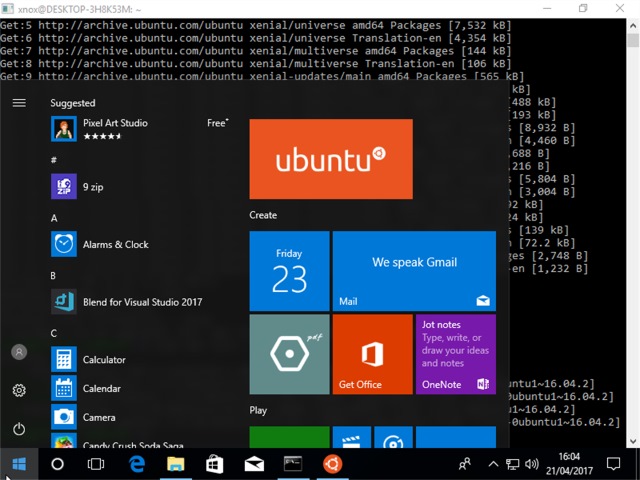
Ubuntu 18.04 LTS hits the Microsoft Store for Windows 10 users
There are now two versions of Ubuntu available to download from the Microsoft Store. Adding to the existing Ubuntu 16.04, Ubuntu 18.04 has also now arrived.
The addition comes just weeks after the official launch of Ubuntu 18.04, and it gives Windows 10 users the option of working with the new LTS (long term support) build of Ubuntu. The older version remains supported for the time being as well.

Canonical finally comments on Ubuntu Linux Snap Store security failure
Over the weekend, we reported on an Ubuntu Snap Store app that had a hidden cryptocurrency miner. This was a disappointing discovery, as users' machines were being hijacked to earn money for the developer.
With that said, it wasn't necessarily malware, as it did not cause harm to the computer, nor did it steal data or install a backdoor. Nevertheless, Canonical pulled the offending app and the developer's other submissions. The apps will eventually be re-listed without the mining code. Today, the company breaks its silence, finally commenting officially on this fiasco.

Ubuntu Snap Store app contained cryptocurrency miner
There was a recent discovery that an app called "2048buntu" in the Ubuntu Snap Store contained cryptocurrency (Bytecoin) mining code. Thankfully, this app -- and the developer's other submissions -- have since been removed.
What is the downside to having this cryptocurrency code commingled with the expected code? Well, the mining can slow down your computer while also increasing your electricity use.
